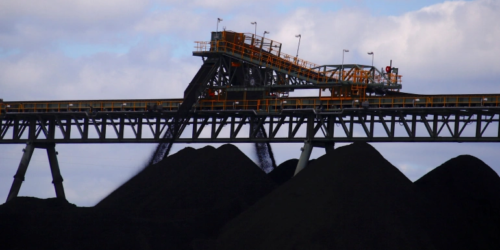China’s thermal coal futures fell as much as 7.5% on Thursday after the state planner warned companies against inflating coal prices and reiterated it would ensure enough supply to stabilise markets.
The most-active thermal coal futures on the Zhengzhou Commodity Exchange were down 3.5% at 836.2 yuan a tonne by 0330 GMT, after falling as much as 7.5% at one point.
But the contract is still up 24% this year, still less than half the life-time high touched during the power crunch in October last year.
The most-traded coking coal futures on the Dalian Commodity Exchange DJMcv1 dropped as much as 5.4%. The National Development and Reform Commission (NDRC) summoned some coal producers on Wednesday, urging them to resume supply as soon as possible, and asked local authorities to strengthen supervision and keep coal prices within a reasonable range.
The warning was the latest in a series of moves to avoid another supply crunch like that which hit late last year, leading to widespread power rationing and record coal prices.
“The NDRC’s move is to cool the future price,” Wood Mackenzie senior consultant Yu Zhai said on Thursday, adding “we expect (the) government to encourage mines to resume operation after Lunar New Year holidays to increase domestic output to stabilise the Qinhuangdao (spot) price soon.”
The Qinhuangdao thermal coal price was 1,010 yuan per tonne on Wednesday, up more than 26% this year, according to Shanghai Steelhome Information Technology.
Total coal inventory at major Chinese ports was at 46.88 million tonnes – the lowest in a year – before the holidays started on Jan. 31, according to data compiled by the China Coal Transportation and Distribution Association.
Coal production by central state-owned enterprises (SOEs) exceeded 1 billion tonnes in 2021, a record high, the State Assets Supervision and Administration Commission (SASAC) said on Thursday in a statement.
“The current international environment and the global energy landscape is undergoing profound changes, China’s energy security and stable supply is also facing many challenges.” SASAC spokesman Peng Huagang recently said at a State Council Information Office conference. He added the central SOEs will have to do a “a good job of energy security”.





